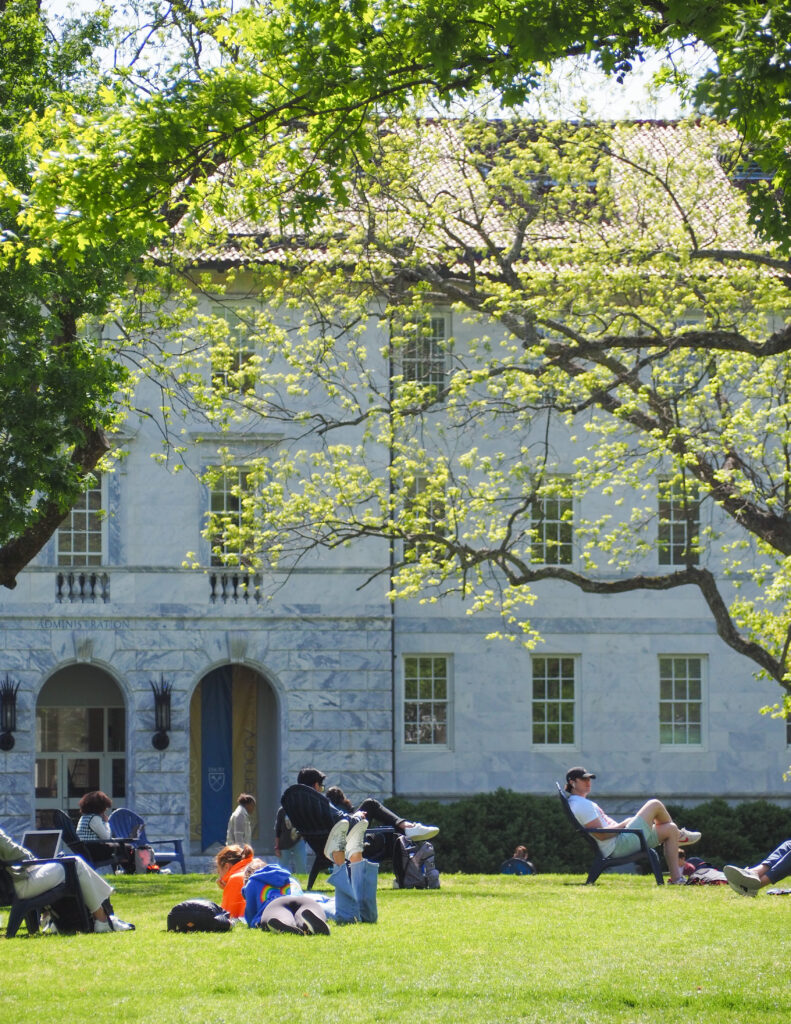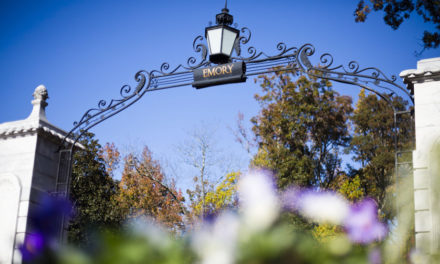Emory University’s new Quality Enhancement Plan (QEP) aims to strengthen students’ access to internships, study abroad programs and other experiential learning opportunities through external partnerships. Experiential learning is an educational approach that stresses student involvement in hands-on activities and applying classroom knowledge to real-world problems.
The University aims to implement the plan, named Connect-Integrate-Reflect: Experiential Education at Emory, to showcase improvement in experiential learning opportunities to Emory’s accreditation association, according to Branden Grimmett, associate dean and vice provost of career and professional development. The Southern Association of Colleges and Schools Commission on Colleges currently accredits the University, allowing Emory to continue services like providing student financial aid.
Grimmett also emphasized that the new plan could help prepare students for the workplace by aligning Emory’s curriculum with the qualities that employers look for when hiring.
“One of the things we often hear from employers recruiting Emory students is they want students to have experience outside the classroom in order to know that the skills they’re learning inside the classroom can be easily applied to the workplace,” Grimmett said.
The University is already adding experiential learning to its curriculum. In the fall semester of 2023, both the Emory College of Arts and Sciences (ECAS) and Oxford College began requiring experiential learning as a general education requirement (GER) for the Class of 2027. ECAS currently offers a variety of experience and application courses like ARTHIST 203, “Architectural Design Studio,” which is a hands-on course that introduces architectural concepts through drawing and modeling projects.
Roan McDonald (25Ox) recalled taking PHIL_Ox 115E, “Introduction to Ethics,” which he said incorporated off-campus volunteer work into the curriculum. According to the course description, students have to complete 18 hours of work at a service activity to earn the fourth credit hour. While taking the course, McDonald worked at a local food pantry, where he helped stock shelves and take shipments.
“It just felt like something impactful to be doing,” McDonald said. “Whereas most of the schoolwork feels self-contained, it doesn’t really have any impact, this felt more valuable to be doing especially, even if it was just two hours a week.”
This semester, ECAS is offering 88 courses under the “Experience and Application” GER designation, while Oxford currently offers 37. However, McDonald expressed that Emory should add experiential learning opportunities to more classes to introduce more students to the benefits of real-world learning.

Emory University announced a new QEP promoting experiential learning. (Ally Hom/Former Photo Editor)
While McDonald expressed approval of the current experiential learning opportunities, he also voiced concerns about overall student participation.
“I heard especially from people who were working with schools and with nursing homes that they didn’t feel like they were doing anything productive,” McDonald said. “A lot of times, they were just sitting around and didn’t have any work to do.”
The QEP aims to address these potential deficiencies in student participation by fostering a better student-faculty connection, according to Center for Pathways & Purpose Interim Director Bridgette Gunnels. Through this connection, the faculty can better observe involvement in experiential learning.
“What you want to do is build relationships, the faculty-to-student relationships, and go deeper with that,” Gunnels said. “For me, that makes assessing the participation of the student, or any student really, a little bit easier.”
Gunnels said that the QEP also targets personal and financial barriers that could prevent students from getting involved with experiential learning. She went on to say that potential solutions to this problem involve outreach and surveying the student population to understand students’ differing situations.
“It begins with a lot of, perhaps, surveys or other assessment tools that allow us to understand, ‘OK, why isn’t this group of students able to participate?’” Gunnels said. “Then, we can address the problem.”
Last summer, the Pathways Center developed a fund that awarded 274 students across 47 majors an average of $3,100, which allowed them to accept internships in six continents, Grimmett said. He added that the center is building a budget to provide more students with funds in the future.
“Students will more confidently be able to say ‘yes’ to internship offers,” Grimmett said. “So, if we’ve got students that are from Georgia, but they want to intern in London or New York or San Francisco, [we are] helping them out to be able to get to those locations and also set up their homes for the summer in those cities.”
Additionally, Grimmett said that students who are not from Atlanta but want to stay in the city over the summer for experiential learning opportunities, like research, can receive financial support.
Grimmett also added that the QEP is still being developed.
“It’s a plan,” Grimmett said. “We haven’t had feedback on the plan yet and so once the feedback has come in, as a part of the review process next week, we’ll be able to take our final steps moving forward.”





